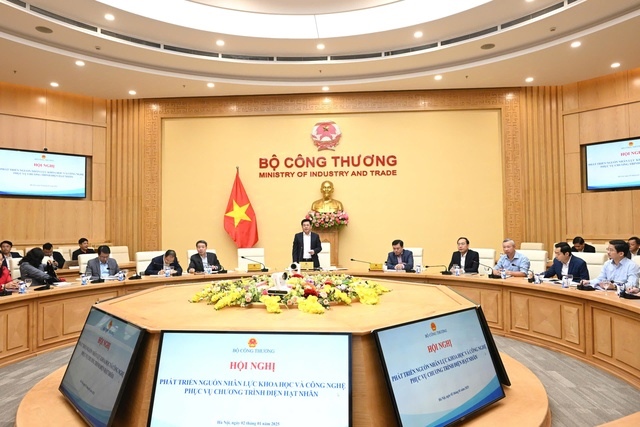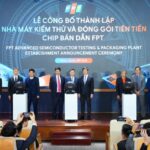On January 2, Hanoi hosted a conference on human resource development in science and technology to support the nuclear power program, organized by the Ministry of Industry and Trade.

Conference on Human Resource Development in Science and Technology for the Nuclear Power Program |
Minister of Industry and Trade, Mr. Nguyen Hong Dien, highlighted that Vietnam has favorable conditions for developing nuclear power, with 13-14 potential sites identified through surveys 15 years ago. He emphasized the significant human resource requirements, stating, “Even with just 1-2 plants, we would need several thousand engineers and technicians. If we expand to more plants (including exporting labor to neighboring countries), preparing a high-quality workforce and technical experts is of utmost importance.”
However, Mr. Ly Quoc Hung, Head of the Science and Technology Department, pointed out the current shortage in both quantity and quality of human resources in the field, especially the lack of leading scientists and engineers.
According to the report by the Vietnam Electricity Group (EVN), before the suspension of the Ninh Thuan Nuclear Power Project in 2016, the Ministry of Education and Training sent a total of 429 students to study nuclear-related fields in Russian universities, including 80 students from Ninh Thuan. EVN also sent 31 students to study nuclear-related specialties and trained 24 engineers in Japan. They collaborated with ROSATOM to develop a detailed training plan for the Ninh Thuan 1 Nuclear Power Project.
Currently, there is no comprehensive review or statistics on the actual situation of the trained human resources mentioned above. However, most of them are working abroad or have switched to other industries, with only a small number remaining with EVN.
Meanwhile, the Ministry of Industry and Trade estimates that the resumption of both Ninh Thuan 1 and Ninh Thuan 2 Nuclear Power Plants (with a capacity of 2×2,000 MW each) would require a workforce of 2,400 people. Additionally, the operation of nuclear power plants would necessitate 350 master’s and doctoral-level experts in nuclear law and regulations, R&D specialists, and fuel cycle experts. There is also a demand for human resources in government management, research institutes, and educational institutions.
Given this reality, Minister Nguyen Hong Dien instructed relevant agencies to urgently forecast the training needs and specialized areas by the first quarter of 2025. He also emphasized the importance of assessing the capacity of research and training institutions within and outside the industry to carry out human resource development for nuclear power and the nuclear energy ecosystem in Vietnam. The Ministry of Industry and Trade further requested these institutions to register with the competent authorities to obtain training quotas through their research and training facilities, with a deadline set for the second quarter of 2025.
Thuy Linh















